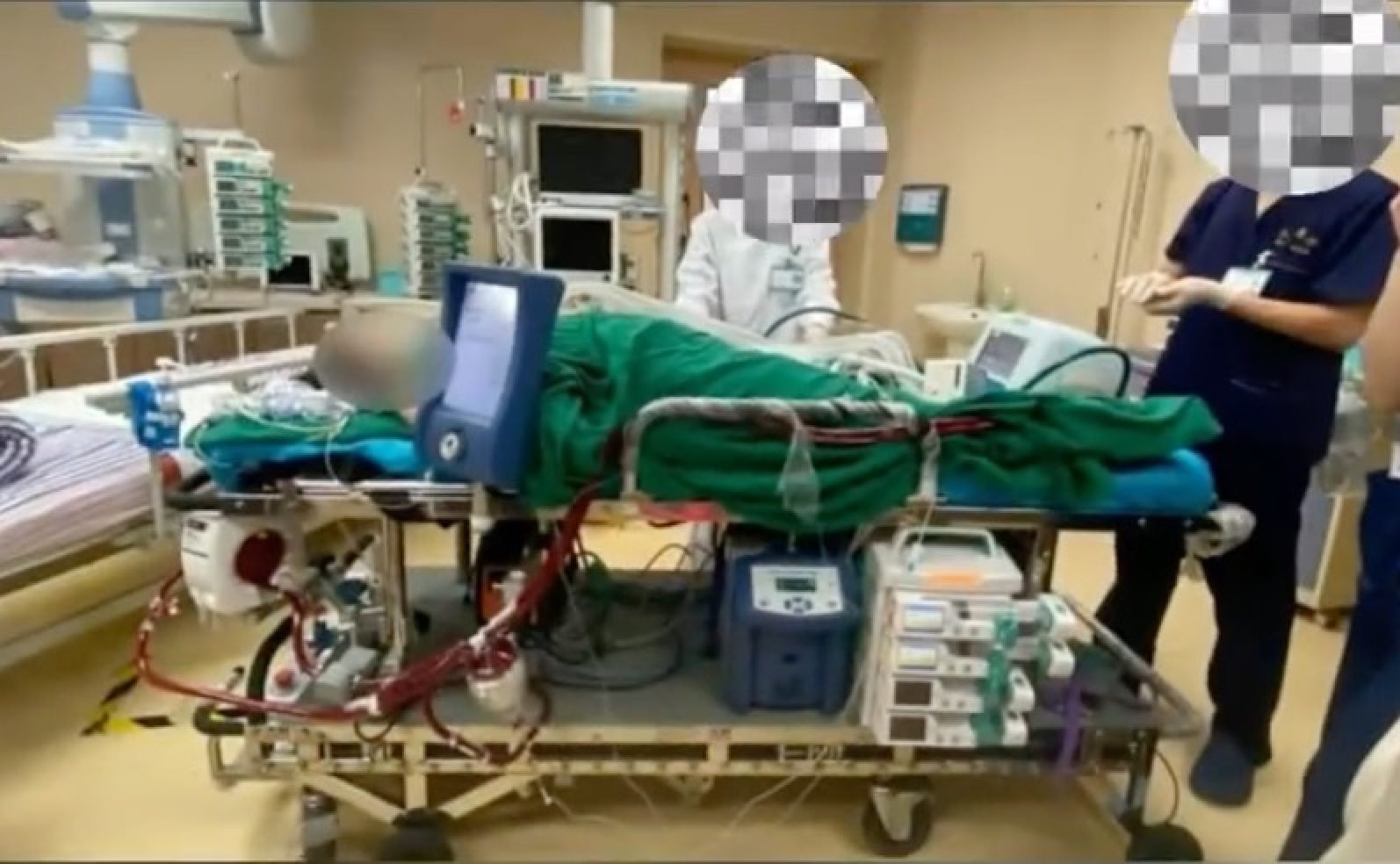
China mother suffers life-threatening pregnancy complication prompting hundreds to donate blood after urgent appeal by husband
- Woman gives birth, suffers post-partum haemorrhage, condition critical
- No blood in hospital, donation station set up, strangers queue up to donate
Hundreds of people in eastern China showed up to donate blood for a mother who suffered a life-threatening complication after giving birth.
On February 25, the woman’s husband, surnamed Wu, who lives in Xuzhou, Jiangsu province, made a social media appeal for donations of type A blood to save his wife’s life following a post-partum haemorrhage, reported Jiangsu TV.
The woman suffered an amniotic fluid embolism, or AFE, which can be life-threatening.
Studies show that the AFE mortality rate varies from 11 per cent to 44 per cent, according to the website of the United States National Library of Medicine.

Wu said his wife was taken to intensive care following surgery to treat her sudden and critical condition.
The hospital was short of blood, sparking Wu’s appeal.
He was surprised when hundreds of people gathered around a blood donation station near the hospital within hours and queued up to donate to help save his wife.
“The nurses at the blood station have been withdrawing blood ceaselessly until late at night,” said Wu. “I feel the warmth from so many strangers. I deeply appreciate their kindness.”
AFE is a catastrophic complication of pregnancy in which the amniotic fluid or tiny parts of the fetus dislodge and enter the mother’s bloodstream, causing cardiovascular collapse.
The cause of the condition is unclear but symptoms range from breathing difficulties, coma, shock, bleeding and even renal failure.
Pregnant women who are over 35 years old, have given birth to multiple babies, have very strong uterine contractions or have too much amniotic fluid are more likely to experience AFE.
In mid-February, a 38-year-old woman in Shandong, eastern China, had AFE when she gave birth to her third child. She was saved thanks to a five-hour-long rescue mission by about 20 doctors and nurses.
Stories about communities rallying round to help an individual often trend on mainland social media.

Last year, a group of elderly women living in a block of flats in eastern Zhejiang province launched a “shared grandma” scheme to provide care and companionship for children while their parents are at work.
A small group of residents in Shanghai formed a volunteer team to regularly visit sick elderly people in their community to offer help, such as cutting hair and shopping.

